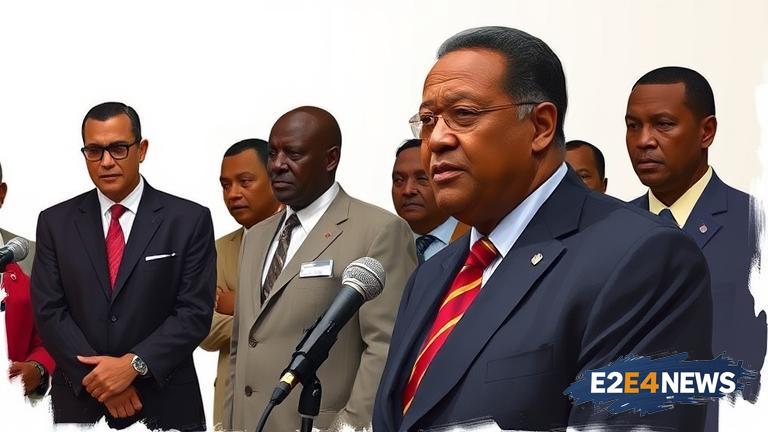The High Court of Zimbabwe has denied bail to former Tourism Minister Walter Mzembi, who is facing corruption charges. Mzembi, who served as the Minister of Tourism and Hospitality Industry from 2009 to 2017, was arrested and charged with criminal abuse of office and corruption. The prosecution alleges that Mzembi misused his office to acquire several properties and assets, including a mansion in a posh suburb of Harare. The state also alleges that Mzembi used his position to influence the awarding of tenders and contracts to his allies and acquaintances. Mzembi’s lawyers had applied for bail, arguing that their client was not a flight risk and was willing to abide by any conditions set by the court. However, the prosecution opposed the application, citing the seriousness of the charges and the likelihood of Mzembi interfering with witnesses. The High Court judge agreed with the prosecution, ruling that Mzembi’s release on bail would undermine the integrity of the trial. Mzembi’s case has sparked widespread interest in Zimbabwe, with many citizens calling for greater accountability and transparency in government. The former minister’s arrest and denial of bail are seen as a significant step towards combating corruption in the country. Mzembi’s trial is expected to commence soon, with the prosecution set to present its case against the former minister. The case has also raised questions about the role of the judiciary in Zimbabwe, with many observers praising the High Court’s decision to deny Mzembi bail. The ruling is seen as a demonstration of the court’s independence and commitment to upholding the law. Mzembi’s lawyers have indicated that they will appeal the decision, but for now, the former minister will remain in custody. The case against Mzembi is part of a broader effort by the Zimbabwean government to tackle corruption and restore public trust in institutions. The government has pledged to root out corruption and ensure that those responsible are held accountable. Mzembi’s case is one of several high-profile corruption cases currently before the courts in Zimbabwe. The former minister’s arrest and prosecution have sent a strong signal that corruption will not be tolerated in Zimbabwe. The case has also highlighted the importance of a free and independent press in holding those in power accountable. The Zimbabwean media has played a crucial role in exposing corruption and bringing it to the attention of the authorities. As the trial against Mzembi gets underway, many Zimbabweans will be watching with keen interest, eager to see justice served and corruption rooted out. The case has significant implications for the future of Zimbabwe, with many hoping that it will mark a turning point in the country’s efforts to combat corruption. The international community will also be watching the case closely, with many countries and organizations calling for greater transparency and accountability in Zimbabwe. The European Union and other international partners have pledged to support Zimbabwe’s efforts to combat corruption and promote good governance. The case against Mzembi is a significant test of Zimbabwe’s commitment to these values. As the trial progresses, it is likely that more details will emerge about the extent of corruption in Zimbabwe and the measures being taken to address it. For now, the denial of bail to Mzembi is seen as a positive step towards ensuring that those responsible for corruption are held accountable.
